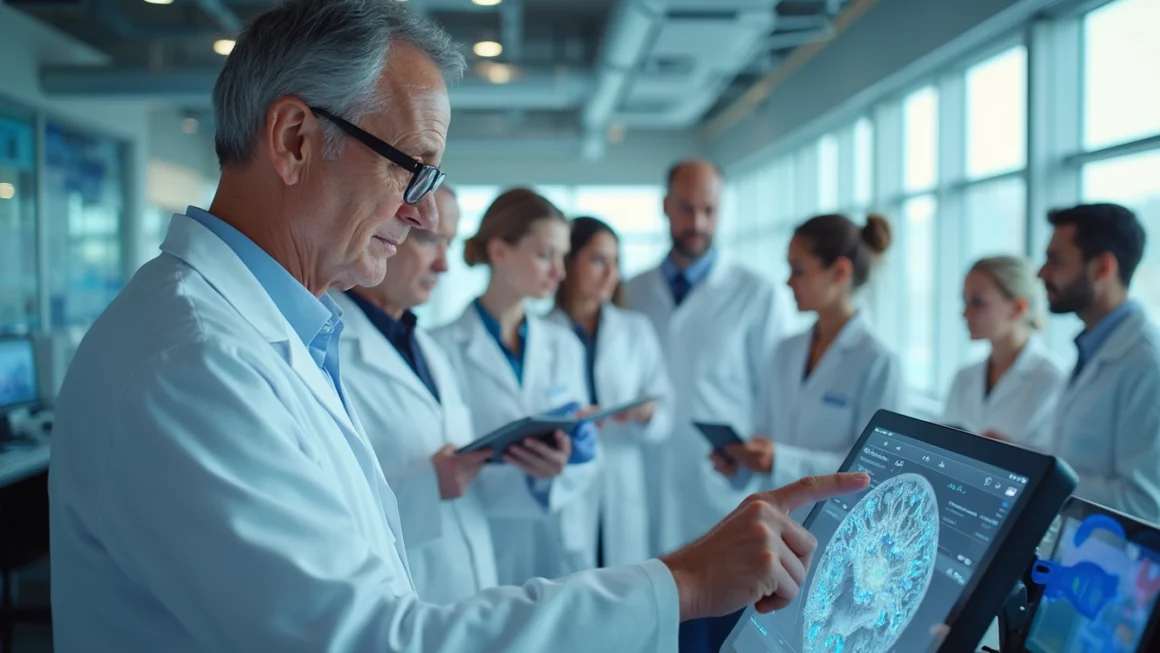In a groundbreaking development, scientists have successfully created synthetic human embryos without the need for sperm, eggs, or a womb. This remarkable achievement, led by researchers at the Weizmann Institute of Science in Israel, marks a significant milestone in the field of developmental biology and stem cell research.
The Breakthrough: Synthetic Embryos from Stem Cells
Table of Contents
The research team, headed by Professor Jacob Hanna, utilized human embryonic stem cells to generate these synthetic embryos. These structures closely resemble natural embryos at an early stage of development, complete with the beginnings of a placenta and yolk sac. This achievement builds upon previous work with mouse embryos and demonstrates the potential for creating human embryo-like structures in laboratory conditions.
Implications for Medical Research and Ethical Considerations
This scientific breakthrough opens up new avenues for studying human development and could potentially lead to advancements in various medical fields. Some potential applications include:
- Understanding early human development
- Researching genetic disorders
- Developing new treatments for infertility
- Advancing regenerative medicine
However, this development also raises important ethical questions. The creation of synthetic human embryos blurs the line between artificial and natural life, prompting discussions about the moral status of these entities and the extent to which they should be used in research.
The Scientific Process
The researchers utilized a technique that involves reprogramming human embryonic stem cells. These cells were coaxed into forming structures that mimic the early stages of human embryo development. The synthetic embryos developed to a stage equivalent to about 14 days of natural embryo growth – a critical point in development when organs begin to form.
Key Differences from Natural Embryos
It’s important to note that these synthetic embryos differ from natural ones in several ways:
- They lack the potential to develop into a viable fetus
- They are created entirely from lab-cultured cells
- They do not involve fertilization or the use of egg and sperm cells
Regulatory and Ethical Challenges
The creation of synthetic human embryos presents new challenges for regulators and ethicists. Current guidelines and laws regarding embryo research may need to be revisited to address this novel area of scientific inquiry. Automated systems for ethical review processes could potentially streamline the evaluation of such research projects, ensuring compliance with evolving standards.
Balancing Scientific Progress and Ethical Concerns
As this field of research progresses, it will be crucial to strike a balance between scientific advancement and ethical considerations. This may involve:
- Developing new regulatory frameworks
- Engaging in public dialogue about the implications of this technology
- Establishing clear guidelines for the use of synthetic embryos in research
Future Prospects and Potential Applications
The ability to create synthetic human embryos could revolutionize several areas of medical research:
1. Developmental Biology
Scientists could gain unprecedented insights into the earliest stages of human development, potentially uncovering new information about congenital disorders and developmental abnormalities.
2. Drug Testing and Toxicology
Synthetic embryos could provide a more accurate model for testing the effects of drugs and environmental toxins on early human development, potentially leading to safer medications and a better understanding of environmental health risks.
3. Personalized Medicine
By creating synthetic embryos from a patient’s own cells, researchers could study personalized treatments for genetic disorders or develop tailored regenerative therapies.
Conclusion
The creation of synthetic human embryos represents a significant leap forward in stem cell research and developmental biology. While this breakthrough offers exciting possibilities for advancing medical knowledge and treatments, it also necessitates careful consideration of the ethical implications. As science continues to push the boundaries of what’s possible, society must engage in thoughtful dialogue to ensure that progress aligns with our ethical values and principles.
As we move forward, it will be crucial to maintain a balance between scientific curiosity and ethical responsibility. The potential benefits of this research are immense, but so too are the ethical challenges it presents. By fostering open discussion and establishing clear guidelines, we can harness the power of this new technology while respecting the profound questions it raises about the nature of life and human development.




